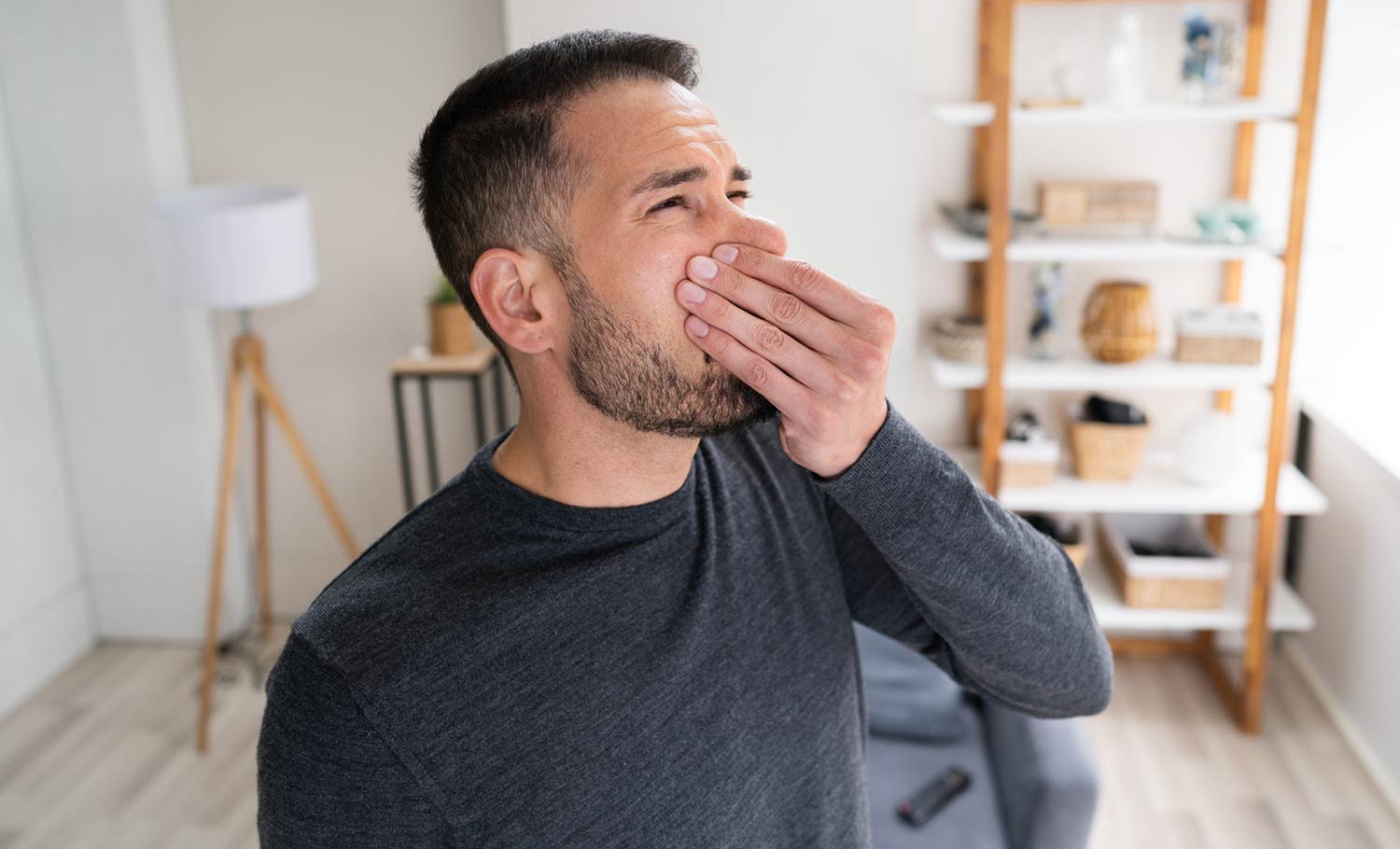It’s one of the most distressing symptoms for patients with otherwise mild cases of COVID-19: prolonged problems with sense of smell. Some patients lose their sense of smell entirely. Others experience prolonged foul smells, or parosmias, that leave them feeling as though they are smelling garbage or raw meat.
Just as stressful: Loss of smell frequently is accompanied by loss of taste.

These symptoms can lead to decreased quality of life—but individuals needn’t suffer alone
A Post-Viral Prescription for Sensory Relief
Why does COVID-19 cause patients to lose their sense of smell? Research shows that the virus can infect cells that provide support to olfactory sensory neurons, which detect and transmit the sense of smell to the brain. Interestingly, the virus doesn’t attack the neurons themselves. That’s important to understand because it means the symptoms of loss of smell, prolonged foul smells and loss of taste will likely disappear after the infection has passed.

The length of time that the symptoms persist varies. A study of COVID-19 hospital patients in Iran found that 96% of the 100 people studied experienced some degree of loss of smell during the late, acute period of infection. Eight weeks later, 61% had regained normal function. One interesting finding: 28% of those who had trouble recognizing certain smells weren’t aware that their senses had been impacted until after testing.
Another study found that while one-in-four people regain their ability to smell and taste two weeks after other COVID-19 symptoms dissipate, for others, the effects on smell and taste could last months. These effects cause stress and anxiety. They can also lead to weight loss and heighten the potential for depression.
If you are struggling after recovery from COVID-19, consider scheduling an appointment with a Holston Medical Group ENT, who can help you navigate your symptoms and put you on the path toward relief.
Retrain Your Sense of Smell? Yes, It’s Possible
Physicians are not just learning about how COVID-19 affects the senses of smell and taste, but also how to combat these symptoms and help patients return to health. We know that smell retraining therapies can speed recovery of smell after many viral illnesses, including COVID-19. This might involve exposing individuals to scents such as eucalyptus, lemon, cinnamon, coffee and chocolate to help “smell-cell pathways” regenerate and recover. New clinical trials also are exploring the use of steroid rinses or Omega 3 fatty acids to help patients overcome smell and taste dysfunction.

Determining the right treatment typically involves consultation with an ENT, who may perform an exam with a nasal scope or imaging studies to rule out other causes of loss of smell or taste. While COVID-19 is still relatively new, ENTs can draw upon studies related to other post-viral causes of loss of smell and apply this information to the treatment of COVID-19 patients to find the right answer.
Help May Be a Phone Call Away
If you have been diagnosed with COVID-19 and continue to experience problems with your sense of smell and taste after your active infection has passed, you may benefit from evaluation by an HMG ENT. Don’t suffer alone. Contact HMG today to start the path to recovery.


